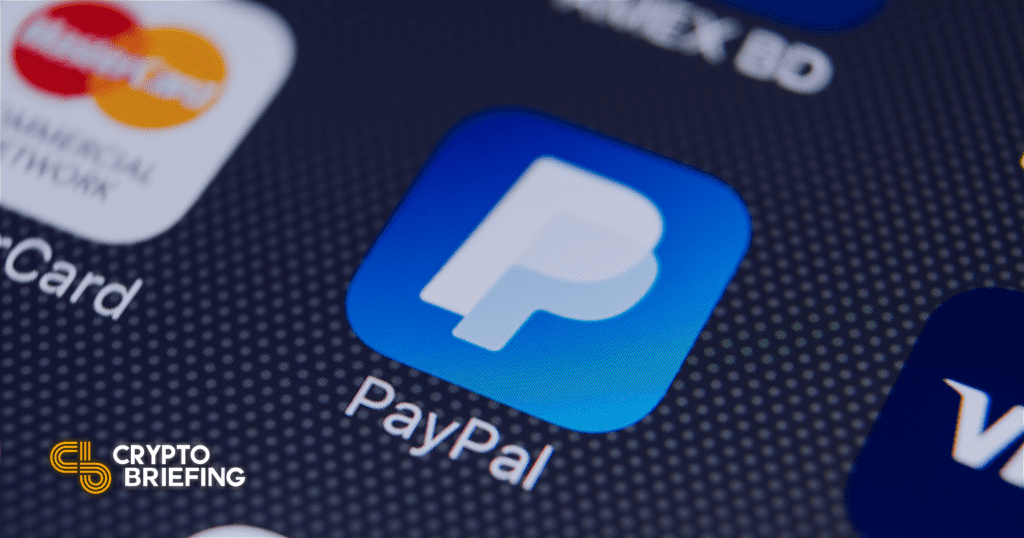
Shutterstock cover by BigTunaOnline
Daily Briefing: Pushing Boundaries
PayPal has sparked outrage with a proposed "misinformation" policy.

Powered by Gloria
PayPal’s proposed “misinformation” penalty has enraged virtually everyone.
“Misinformation” Penalty
Every now and again, a story breaks that doesn’t have much to do with crypto per se but still grips the space as if the scandal were its own. So it was when it came to light this weekend that PayPal had rewritten its user agreement in such a way that would allow it to seize a penalty of $2,500 from users who violated a new “misinformation” policy. Among the many crying foul is the crypto community, which can now point to PayPal’s moves as an example that makes all their arguments for them.
The policy in question involved allowing the company to impose a $2,500 on users for using the platform for “sending, posting, or publication of any messages, content, or materials” that promote or distribute “misinformation.” As a money transmitter that effectively holds funds for customers until they are ready to spend them, it’s exceptionally easy for PayPal to just, you know, take them.
There are at least two problems here, and it’s tough to decide which one is more concerning.
The first is the exceptionally fraught term “misinformation” and who gets to decide what that means. Who could forget rumors earlier this year that the Department of Homeland Security was floating the idea of a “Disinformation Governance Board,” which was quickly given the Orwellian nickname “Ministry of Truth”? Such was the outrage that the Department shelved the initiative after three weeks; it died a formal death in August.
The second has less to do with who’s allowed to say what, when, and where and more to do with who holds unilateral power. That PayPal would even attempt to hoodwink the user into granting such power of seizure over their own money is pretty brazen, any way you look at it.
Outrage was swift and severe. Today, much of the offending language has been removed from the agreement if, indeed, it was ever intended to be there at all. To hear PayPal tell it, the new policy was sent out “in error” and the company has since backtracked as quickly as possible. Still, it begs the question of how something this sensitive was screwed up this badly, as well as why PayPal’s team was even tinkering with such draconian language in the first place.
PayPal’s backpedaling notwithstanding, crypto advocates will inevitably point to this as another example of the failings—if not outright crimes—of centralized service providers. They have a point. One of the shortcomings of the traditional financial structure is the ability of certain institutions, such as banks and money transmitters, to effectively twist the arms of users into signing grotesque terms and conditions in order to participate in the broader financial system. Different institutions play by different rules with varying degrees of consumer protection encoded in law, but the basic play of pushing the boundaries of how much control they can exercise over your money remains the same.
So PayPal can backtrack all it wants; intentional or not, it still has to take a black eye on this one. The company’s stock price is down 5% today, and the PR faux pas could easily come back to haunt it.
Disclosure: At the time of writing, the author of this piece owned BTC and several other cryptocurrencies.
